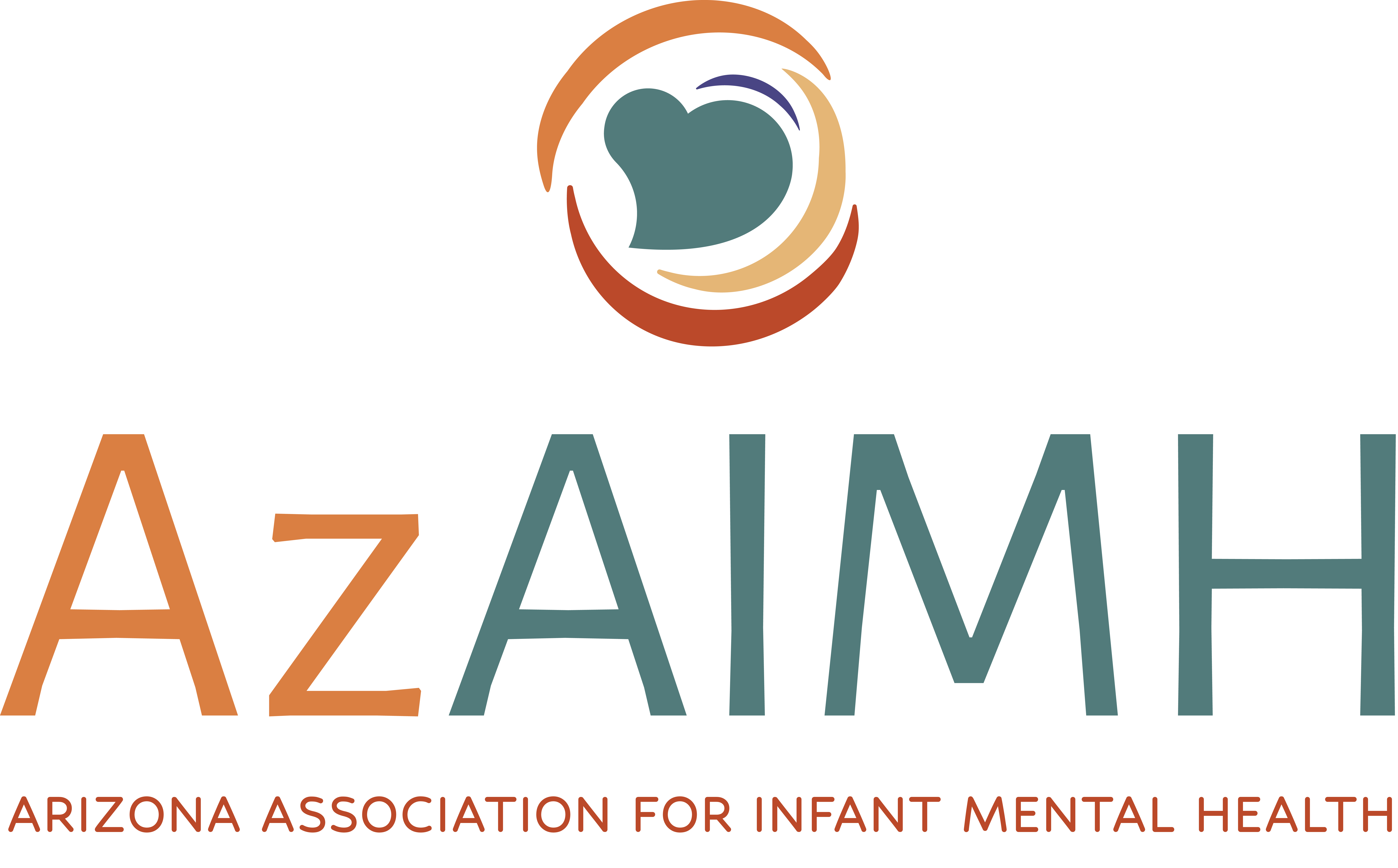What is Infant and Early Childhood Mental Health?
The developing capacity from birth to 5 “to experience, regulate, and express emotions; to form close relationships; and to explore the environment and learn” – all in the context of family, community, and cultural expectations for young children.
An infant, toddler, and young child’s mental health is every part as important as their physical health. Mental health matters for the growth and maturity of the brain and body and the social and emotional development of a person – now and for the whole lifetime.
What do we hope infant and early childhood mental health looks like?
AzAIMH hopes to see all infants, toddlers, and young children being nurtured and protected by caring adults – most often their parents – in a way that provides the basis for secure parent-child relationships. It is within these special relationships that infants, toddlers, and young children build strong (or weak) foundations for all emotional, cognitive, and social development. Research has also linked these strong early relationships and a person’s lifelong physical health.
Ultimately, when parents and other caregivers are responsive, protective, and stable, infants, toddlers, and young children become confident, resilient, better able to manage their emotions, and can connect with their caregivers in healthy ways.
Infant mental health refers to how well a child develops socially and emotionally from birth to three. The key to preventing and treating mental health problems of very young children and their families is to take an approach informed by infant mental health principles and practices. This approach also supports relational health by guiding the development of healthy social and emotional behaviors. Infant and early childhood mental health is based on the same principles but expands the reach to include young children of 3-6 years of age and their caregivers.
1 The Center on the Social Emotional Foundations for Early Learning. Infant Mental Health and Early Care and Education Providers. Vanderbilt University, retrieved from: http://csefel.vanderbilt.edu/documents/rs_infant_mental_health.pdf
Family Support
Bright by Text
Bright by Text provides quality information and trusted resources to parents and caregivers of children prenatal to age eight. Available in English and Spanish; the messages are comprised of research-based content from Bright by Three and partners such as PBS, Vroom, and Sesame Street.
Brazelton Touchpoints Center
The Touchpoints Model is a training program for multi-disciplinary professionals. Its goal is to provide them with skills and strategies with which they can build alliances with parents of children aged zero to three. The Touchpoints framework focuses on key points in the development of infants, toddlers, and their families.
Center on the Social and Emotional Foundation for Learning (CSEFEL)
This five-year project will support a national center to help Head Start and Child Care programs identify and implement practices with demonstrated effectiveness in promoting children’s social and emotional competence. The Center on the Social and Emotional Foundations for Early Learning is a collaborative initiative of the Child Care and Head Start Bureaus. The goals of the Center are designed to strengthen the capacity of Child Care and Head Start to improve the social and emotional outcomes for young children. The University of Illinois will partner with a consortium of universities and early childhood organizations including the University of Colorado at Denver, the University of South Florida, the University of Connecticut, Tennessee Voices for Children, and Education Development Center to carry out the goals and activities of the Center.
National Scientific Council on the Developing Child
The National Scientific Council on the Developing Child was created to extend the work that culminated in the publication of From Neurons to Neighborhoods (National Research Council and Institute of Medicine, 2000). The ultimate goal of the Council is to enhance the early development of children through the design and implementation of effective public and private policies and programs. Based on its belief in the value of sound and accurate science as a foundation for enlightened action, the Council will serve as a credible knowledge broker by translating research findings for multiple audiences and identifying evidence-based strategies to guide social policies, professional services, and parenting practices.
National Association for the Education of Young Children (NAEYC)
The National Association for the Education of Young Children (NAEYC) is a nationwide membership organization of early childhood educators and others dedicated to improving the quality of programs for children from birth through third grade. The website provides information on accreditation, early learning, resources for both parents and childcare providers, and early childhood education policy.
Child development
Two of our top selling products have had a facelift!
A Caregiver's Guide to the Social and Emotional Development of Infants and Toddlers (Birth to 3)
MI-AIMH Resource Wheels: Baby Stages, Preschool Stages, Rolling into Fatherhood, & Pregnancy Wheel
A Caregiver's Guide to the Social and Emotional Development in the Preschool Years(2-5 years)
Baby Stages and Preschool Stages make great take-home tools for your early education class, home visiting program, pediatrician’s office, and more.

